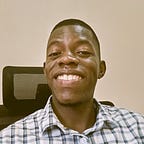again? think Do ever you: 🤔
After reading a mind-captiving book, by Adam Grant, an author in the League of Titans (Malcom Gladwell, Daniel Pink, James Clear and Cal Newport), I have been questioning my knowledge and seeking to know how wrong I could be and celebrating when I found out I have been wrong. To many, knowledge is the ultimate treasure that is gospel-truth and never goes through the sieve-filters to question its validity and changed therafter.
In corporate spaces, we-have-always-done-it-this-way is a theme you shall always hear from an experienced team member who knows ‘the best practices’ and never, if ever approached with a better option, wills to change his/her mind. You ought to walk along the dotted-line so as to achieve ‘results’. Great ideas are buried in an effort not to step on some-one’s toes. The ideas that are aired are never challenged and find their way to accumulate the corporate fossils in office racks. Such ideas are never read again, not to mention executed and gather dust.
Knowledge held with no sense of its validity and use-case can be disatrous. Adam Grant says, ‘The curse of knowledge is that it closes our minds to what we don’t know.” Many people, (including yours faithfully who is still struggling to practice rethinking), have ‘Berlin-walled’ minds that never allow to learn anything contreversial to their percieved knowledge. They operate in three modes of; prosecutor mode, prosecuting everyone who holds a different viewpoint, politician mode by politiking in support of their ‘tribe’/team and preachers mode, by preaching their deep held values.
When it comes to our knowledge and opinions, we often favor feeling right over being right. We are quick to engrave our opinions with truth even when we started off well knowing our opinions could be flawed. We later on, become identified by our opinions that it is hard to separate one from an opinion.
A study conducted in 1985 by Hal Arkes and Catherine Blumer, behavioral economics researchers, found that “people’s decisions-making varies depending on how much time and resources they have already invested in the matter.” Blumer and Arkes distillled the sunk mindset as “a greater tendency to continue an endeavor once an investment in money, effort or time has been made,” despite its irrationality.” This is true in economics and psychology too. We are justifying creatures who want to prove right so as to satisfy our ego. This explains the tendency why we get much glued to our uneffective and down-right wrong ideas and knowledge.
Rethinking is a life skill everyone ought to cultivate. When it comes to our gadgets, we shoot to the stores to buy an iPhone14 because we feel iPhone13 has become a stone-age-technology, we refresh our wardropes when they get out of style and renovate our kitchens (if at all you own one, I don’t yet.) and set automatic updates on our PCs, and deliberately and unconsciously stick to our guns when it comes to our knowledge, experience and world-views. We laugh at people who run windows 95 on their old brick-heavy machines, and never pause to rethink our views, opinions we got identified with in 1990. We are quick to elect Berlin walls and shoot down any idea that threatens our worldviews. We never listen with an intent to understand and update our ideas. We are preachers, prosecutors and politicians clad in robes of pride and crowned with an encyclopedia of ‘knowledge’.
Rethinking, much like dental care, should be a daily habit you and I exercise with no a-dog-ate-my-homework kind of excuse. A starter-pack for practising rethinking could be holding an idea and finding how much you could be wrong. For example, when considering which idea a team can execute, analyze ideas objectively without ego and be keen to identify flaws in your own ideas, ask teammates to show you where you could be wrong.
May rethinking become a way of your life in 2023 and beyond, may you cultivate the rewarding habit to doubt your knowledge and have confident humility when approaching situations. And may you forget all you read in this article but remember to practice rethinking.
Happy new year of rethinking. Blessings.
